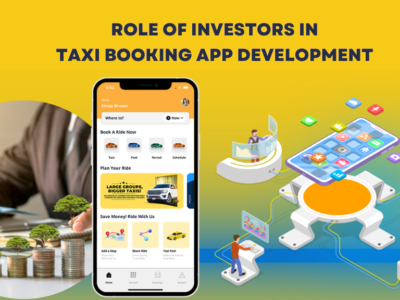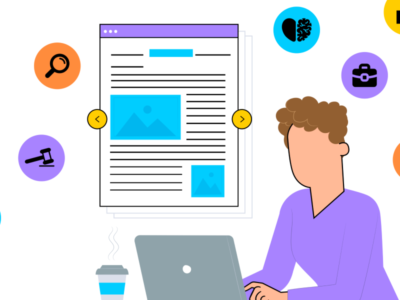AI Chatbots: Advantages and Disadvantages
Ever since their advent a few decades ago, AI chatbots have disrupted almost every aspect of modern online businesses. Their application in marketing automation, data crunching, and customer service is known to most of us. Yet, they continue to be a mystery.
Thank you for reading this post, don't forget to subscribe!How so?
According to recent research, chatbot users have admitted that they are not familiar with the intricacies of the technology. They are also concerned that they lack the skills required to leverage chatbots fully.
If you are planning to invest in AI chatbot development, you need to be aware of all the challenges that chatbots pose. You also need to learn about all the use cases of chatbots so that you can extract maximum return from your investment. And, that’s precisely what is covered in this post.
Businesses that have adopted artificial intelligence (AI) chatbots have seen many benefits in terms of reducing overheads and offering exceptional customer service.
However, experiences with chatbots do not always meet expectations. Sometimes the conversation will lack flow or fail to resolve customers’ issues.
But this does not mean you should not implement them. Instead, it should cause you to understand the challenges so you can build a chatbot that meets customer and business needs.
But what are these benefits and challenges?
And in this post, we examine the benefits and risks your company can expect when deploying an AI chatbot.
Find out below.
Advantages of AI Chatbots
Before we talk about the pros and cons of chatbots, there are some things worth mentioning. AI chatbots are machine-learning-enabled solutions that can be embedded on websites and apps.
By natural language processing, bots can understand human language and mimic human responses. That’s why they are being used extensively in online customer service and support.
Now, let’s talk about the opportunities that AI chatbots present. They are:
- Lead Identification and Nurturing: Chatbots can identify the buyer journey stage of each user and serve them content tailored to their needs and interests. This way, they can push leads organically to the next sales funnel stage, without human intervention.
- User Engagement and Experience: Conversational chatbots can keep users engaged through quizzes, question-answers, and surveys. Well-programmed chatbots can solve routine user queries and make their onsite experience pleasant and painless.
- Customer Handling at Scale: A single chatbot can handle multiple customers at a time. They can also work tirelessly, without requiring any downtime or overtime pay. As a result, they greatly reduce the burden on your live agents and reduce your customer-handling costs.
Using an AI chatbot for your business can help streamline communication with consumers.
But that’s not all…
Other benefits include:
Instant Problem Resolution
Want to remain competitive?
Offer customers instant answers to their questions.
And how can you offer instant solutions?
Integrate an AI chatbot on your site, Facebook Messenger, or app to help with customer support. AI chatbots use previous interactions, knowledge bases, and FAQs to surface relevant answers based on the customer types. It can also help in mobile app marketing due to one-to-one communication with your users.
This way, visitors don’t just get suggestions, but interactive conversations that help them solve problems immediately.
24/7 Support
Need a team to work the nightshift or during the holidays?
AI chatbots can help.
They can step in to handle customer questions, send links to resources, and indicate when an agent will get in touch with the customer. You can integrate your RSS Feed Reader and News Aggregation Apps to send updates automatically to your readers.
Improved Customer Experience
AI chatbots use data they collect from customers to continuously learn and improve the quality of help they offer.
You can also train them to provide better answers depending on what customers previously asked. This way, you improve the quality of answers customers get from the chatbots.
Disadvantages of AI Chatbots
As with all technologies, AI chatbots come with their own disadvantages. They include:
Using AI chatbots for your business also has drawbacks and risks. However, you can put solutions in place to avoid them.
And what drawbacks do they have?
Security Issues
Depending on your AI chatbot use case, you may ask for personal information or account details from your customers. Therefore, safety measures are crucial to protect this data from hackers or malicious individuals.
And how do you protect it?
- Being in the virtual space, bots are susceptible to data breaches and leaks. For companies that use bots to gather sensitive personal and financial data, data security lapses can be disastrous.
- No matter how well-programmed a bot is, it isn’t human. It can’t pick the finer nuances of human language and provide apt responses at times. For this reason, users have reported that they are more comfortable conversing with human agents than with bots.
Failure to Understand Human Language
One of the key differentiators between a good and a bad chatbot is its ability to understand basic human language. If it can not accommodate deviations from what it’s programmed to say, then customers will encounter problems.
But there’s good news.
You can fix this problem by programming your chatbot to learn from conversations with users. This then ensures that with time they learn and get better at guiding customers through the funnel.
Most importantly, have a system in place to seamlessly loop in an agent when unexpected situations arise.
Final Words
Chatbots can be a boon to businesses that understand how to use them discreetly. Regardless of how you plan to use them, you need to research their ins and outs carefully before taking the plunge.
To learn more about chatbots and their applications, check out this infographic below. 











